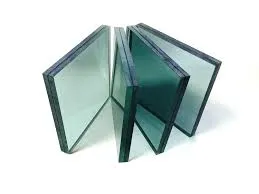Is Rain Glass More Expensive than Clear Glass?
When it comes to choosing the right type of glass for various applications, consumers often find themselves navigating a myriad of options. Two popular choices in the market are rain glass and clear glass. Each has its unique properties and applications, but one question frequently arises is rain glass more expensive than clear glass? In this article, we will explore the differences between these two types of glass, their manufacturing processes, applications, and ultimately, their cost comparison.
Understanding Rain Glass and Clear Glass
Rain glass, often referred to as water-glass or obscure glass, features a textured surface that mimics the effect of raindrops on a window. Its wavy pattern not only provides an aesthetic appeal but also serves practical purposes, such as obscuring visibility while still allowing light to pass through. This makes rain glass an ideal choice for areas where privacy is desired, such as bathrooms and certain office settings.
On the other hand, clear glass is transparent and offers a straightforward, unobstructed view. It is commonly used in windows, doors, and facades where clarity and visibility are essential. Clear glass is often manufactured to high optical standards, making it suitable for applications that require precision and transparency, such as in showcases or glass partitions.
Manufacturing Processes
The cost of any material is often influenced by its manufacturing process. Clear glass is made from silica sand, soda ash, and limestone, which are melted at high temperatures and then formed into sheets. The process is relatively straightforward, requiring less intricate machinery and techniques.
In contrast, rain glass undergoes a more complex manufacturing process. The texture is usually created through techniques like rolling or pressing during production when the glass is still hot. This additional step adds complexity to the manufacturing process, which can contribute to higher production costs. Furthermore, producing rain glass requires advanced machinery capable of creating consistent patterns without compromising the strength and clarity of the material.
is rain glass more expensive than clear glass
Cost Comparison
When comparing the costs of rain glass and clear glass, several factors come into play. Generally, rain glass tends to be more expensive than standard clear glass due to its specialized manufacturing process and the added aesthetic value it provides. The textured surface not only enhances privacy but also adds a decorative element to architectural designs, making it a sought-after choice for various projects.
On average, the price difference can vary based on thickness, size, and supplier, but it's not uncommon for rain glass to be priced 20-50% higher than its clear counterpart. For instance, if a standard sheet of clear glass costs around $10 per square foot, a similar sheet of rain glass could range from $12 to $15 or more, depending on market conditions and supplier pricing.
Applications and Value Consideration
The decision to invest in rain glass versus clear glass often hinges on the intended application. For projects where privacy is a priority without sacrificing natural light, the benefits of rain glass can outweigh the additional cost. Its unique appearance and functional qualities can elevate the overall aesthetics of a space, making it a valuable choice in interior design.
Moreover, rain glass can also be utilized in decorative panels, shower doors, and even partitions in modern office designs, adding to its versatility. This multifaceted functionality justifies its higher price point for many consumers.
Conclusion
In summary, rain glass is typically more expensive than clear glass due to its complex manufacturing process and unique aesthetic qualities. While clear glass remains a predominant choice for those prioritizing transparency and cost-effectiveness, rain glass offers significant advantages in terms of privacy and design. Ultimately, the selection between these two types of glass should be informed by the specific needs of the project, budget considerations, and the desired visual appeal. When making a choice, it’s important to weigh the benefits against the costs to ensure the selected glass meets both functional and aesthetic requirements.
 Afrikaans
Afrikaans  Albanian
Albanian  Amharic
Amharic  Arabic
Arabic  Armenian
Armenian  Azerbaijani
Azerbaijani  Basque
Basque  Belarusian
Belarusian  Bengali
Bengali  Bosnian
Bosnian  Bulgarian
Bulgarian  Catalan
Catalan  Cebuano
Cebuano  Corsican
Corsican  Croatian
Croatian  Czech
Czech  Danish
Danish  Dutch
Dutch  English
English  Esperanto
Esperanto  Estonian
Estonian  Finnish
Finnish  French
French  Frisian
Frisian  Galician
Galician  Georgian
Georgian  German
German  Greek
Greek  Gujarati
Gujarati  Haitian Creole
Haitian Creole  hausa
hausa  hawaiian
hawaiian  Hebrew
Hebrew  Hindi
Hindi  Miao
Miao  Hungarian
Hungarian  Icelandic
Icelandic  igbo
igbo  Indonesian
Indonesian  irish
irish  Italian
Italian  Japanese
Japanese  Javanese
Javanese  Kannada
Kannada  kazakh
kazakh  Khmer
Khmer  Rwandese
Rwandese  Korean
Korean  Kurdish
Kurdish  Kyrgyz
Kyrgyz  Lao
Lao  Latin
Latin  Latvian
Latvian  Lithuanian
Lithuanian  Luxembourgish
Luxembourgish  Macedonian
Macedonian  Malgashi
Malgashi  Malay
Malay  Malayalam
Malayalam  Maltese
Maltese  Maori
Maori  Marathi
Marathi  Mongolian
Mongolian  Myanmar
Myanmar  Nepali
Nepali  Norwegian
Norwegian  Norwegian
Norwegian  Occitan
Occitan  Pashto
Pashto  Persian
Persian  Polish
Polish  Portuguese
Portuguese  Punjabi
Punjabi  Romanian
Romanian  Russian
Russian  Samoan
Samoan  Scottish Gaelic
Scottish Gaelic  Serbian
Serbian  Sesotho
Sesotho  Shona
Shona  Sindhi
Sindhi  Sinhala
Sinhala  Slovak
Slovak  Slovenian
Slovenian  Somali
Somali  Spanish
Spanish  Sundanese
Sundanese  Swahili
Swahili  Swedish
Swedish  Tagalog
Tagalog  Tajik
Tajik  Tamil
Tamil  Tatar
Tatar  Telugu
Telugu  Thai
Thai  Turkish
Turkish  Turkmen
Turkmen  Ukrainian
Ukrainian  Urdu
Urdu  Uighur
Uighur  Uzbek
Uzbek  Vietnamese
Vietnamese  Welsh
Welsh  Bantu
Bantu  Yiddish
Yiddish  Yoruba
Yoruba  Zulu
Zulu 

